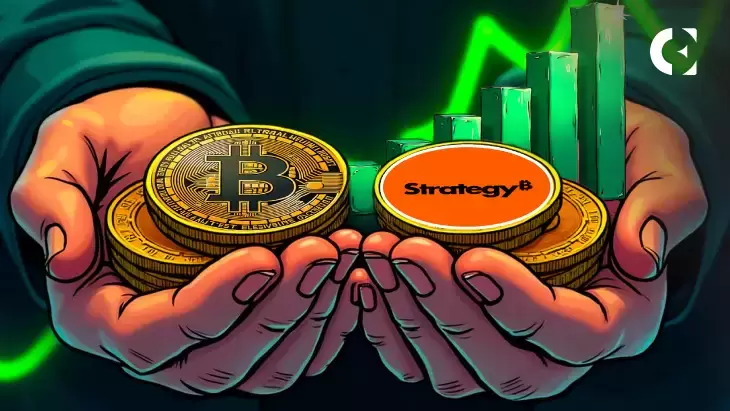 |
|
 |
|
 |
|
 |
|
 |
|
 |
|
 |
|
 |
|
 |
|
 |
|
 |
|
 |
|
 |
|
 |
|
 |
|
Cryptocurrency News Articles
Is Binance Safe and Legit? A Comprehensive Guide to Its Security Measures
Apr 21, 2025 at 11:56 am
This guide will cover what Binance is and explain its various security measures, including past hacks and regulatory issues.

Binance is a cryptocurrency exchange that offers trading for over 350 cryptocurrencies. It started in China in 2017 and later moved to Malta to avoid legal issues. The exchange serves over 250 million users who can trade crypto, earn interest through staking, and explore NFTs. Binance also runs Binance Smart Chain for decentralized apps and has low fees starting from 0.10% for regular users, offering discounts with Binance Coin (BNB).
About Changpeng Zhao
Changpeng Zhao is the founder and former CEO of Binance. He started his career in Tokyo as a software developer for futures trading systems. In 2013, Zhao became interested in Bitcoin and blockchain technology. He joined a startup that year and later co-founded Fusion Systems, a company that built cryptocurrency trading platforms for banks and exchanges.
Together with colleagues from Fusion Systems, Zhao founded Binance in July 2017. The exchange quickly gained popularity for its low fees, high liquidity, and advanced trading features. Within six months, Binance became the world's largest cryptocurrency exchange by trading volume.
In December 2019, Zhao announced that he was stepping down as CEO to focus on strategic initiatives and expanding the Binance ecosystem. He was succeeded by Minghao Chen, who previously served as president of Binance and oversaw its daily operations.
Legal Issues Faced by Binance
The U.S. Securities and Exchange Commission (SEC) sued Binance and its founder, Changpeng Zhao, in March 2023. The complaint alleged that Binance had engaged in unlawful activities, including failing to register its exchange, serving U.S. customers without proper authorization, and misusing customer funds.
The SEC's complaint further accused Binance of facilitating insider trading by Zhao, who allegedly sold his own tokens while privy to non-public information. The regulator also claimed that Binance engaged in manipulative trading practices, actively seeking to inflate trading volume and artificially influence market prices.
Moreover, the complaint alleged that Binance flouted anti-money laundering (AML) obligations, failing to report suspicious transactions and allowing users to withdraw funds without adequate due diligence.
The CFTC also sued Binance in March 2023 for allegedly flouting U.S. derivatives laws by offering futures and swap products to American traders without registering with the agency. In its lawsuit, the CFTC accused Binance of willfully evading its regulatory oversight and engaging in unregistered activity in a bid to expand its business empire.
The CFTC alleged that Binance Holdings Ltd and its founder, Changpeng Zhao, had full knowledge that they were required to register with the CFTC but deliberately chose not to do so. Instead, Binance actively sought to evade U.S. law throughout its operations.
According to the CFTC, Binance Holdings Ltd and its affiliate, Binance Markets Ltd, operated a derivatives exchange or clearing house and a futures commission merchant, yet they failed to register any of these activities with the agency.
The CFTC's complaint focused on Binance's alleged flouting of its jurisdiction and flouting of U.S. derivatives laws. It highlighted how Binance had engaged in activities that fell squarely within the CFTC's regulatory domain but were being conducted without the agency's authorization.
In November 2023, Binance and its founder, Changpeng Zhao, pleaded guilty to violating U.S. laws, leading to a $4.3 billion settlement with the government.
The plea deal saw Binance admit guilt for violating the Bank Secrecy Act by failing to maintain an effective anti-money laundering (AML) program and engaging in willful blindness toward illicit financial activity on its platform.
The U.S. Department of Justice (DOJ), along with the Commodities Futures Trading Commission (CFTC) and the Financial Crimes Enforcement Network (FinCEN), announced the imposing of a $4.3 billion settlement on Binance and its founder, Changpeng Zhao, for flouting U.S. financial crimes and futures trading laws.
As part of the settlement, Zhao will personally step down as CEO and pay a $50 million to resolve the DOJ's probe into his role in facilitating the illicit activity.
The DOJ's investigation spanned several years and focused on Binance's alleged failures to prevent money laundering and other financial crimes on its platform. The regulator claimed that Binance had turned a blind eye to suspicious transactions and failed to implement adequate risk management protocols, enabling billions of dollars in illicit funds to flow through its exchange.
The CFTC's lawsuit focused on Binance's alleged flouting of its jurisdiction and flouting of U.S. derivatives laws. It highlighted how Binance had engaged in activities that fell squarely within the CFTC's regulatory domain but were being conducted without the agency's authorization.
According to the CFTC, Binance Holdings Ltd and its affiliate, Binance Markets Ltd, operated a derivatives exchange or clearing house and a futures commission merchant, yet they failed to register any of these activities with the agency.
The CFTC's complaint focused
Disclaimer:info@kdj.com
The information provided is not trading advice. kdj.com does not assume any responsibility for any investments made based on the information provided in this article. Cryptocurrencies are highly volatile and it is highly recommended that you invest with caution after thorough research!
If you believe that the content used on this website infringes your copyright, please contact us immediately (info@kdj.com) and we will delete it promptly.
-

-

-

-

- Dogecoin (DOGE) Community Celebrated Doge Day, Despite the Lackluster Price Action
- Apr 21, 2025 at 07:15 pm
- The Dogecoin (DOGE) community just celebrated Doge Day, also known as D-Day, on April 20 or 4/20. However, similar to the coin's previous reception to the event, its price action was only mild
-

-

-

-

-


























































